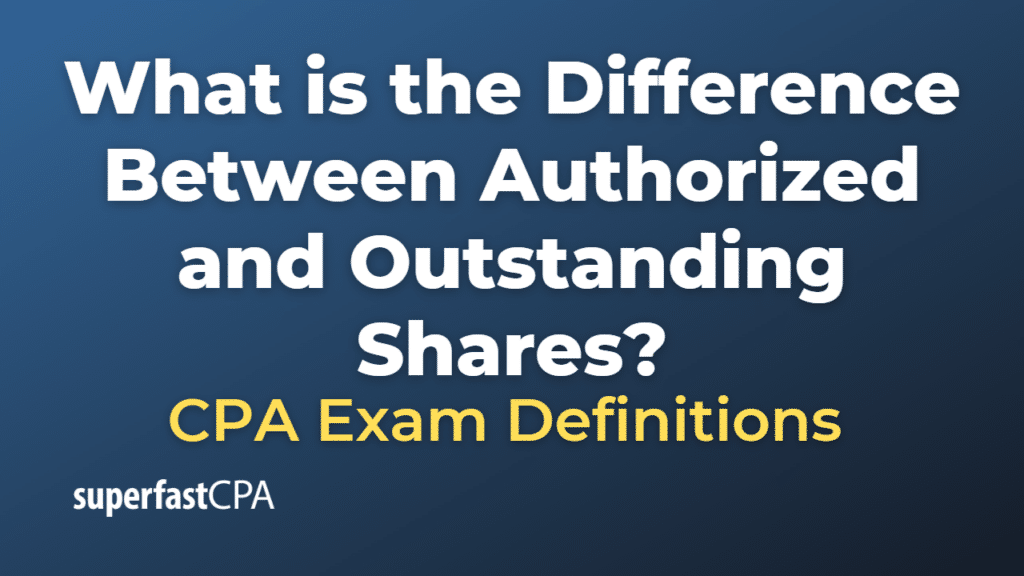Difference Between Authorized Shares and Outstanding Shares
Authorized shares and outstanding shares are terms related to a company’s stock. They represent different stages in the life cycle of a company’s shares.
- Authorized Shares: These are the maximum number of shares that a corporation is legally permitted to issue, as specified in its articles of incorporation. This number can be changed if the shareholders vote to do so. However, not all authorized shares are issued to the public. Companies often authorize more shares than they actually issue to retain flexibility for future business needs, such as raising capital, issuing stock options to employees, or carrying out stock splits.
- Outstanding Shares: These are the shares that a company has issued and are currently held by all its shareholders, including share blocks held by institutional investors and restricted shares owned by the company’s officers and insiders. Outstanding shares are those that are authorized, issued, and purchased, and they have voting rights and represent ownership in the corporation by the person or institution that holds them.
In short, authorized shares represent the maximum potential number of shares a company can issue, while outstanding shares are those that have already been issued and are currently held by shareholders.
Example of the Difference Between Authorized Shares and Outstanding Shares
Let’s consider a hypothetical company, TechCorp.
When TechCorp was incorporated, its articles of incorporation authorized the issuance of 1 million shares of common stock. This means that TechCorp has the ability to issue up to 1 million shares, but it doesn’t necessarily mean that all of these shares have been or ever will be issued.
Let’s say that TechCorp decides to conduct its initial public offering (IPO) and issues 500,000 shares to the public. It may also issue another 200,000 shares to its executives and employees as part of their compensation (stock options). This means TechCorp has 700,000 shares that are issued and outstanding, i.e., they are currently owned by shareholders.
Therefore, TechCorp still has 300,000 authorized but unissued shares (1 million authorized shares minus 700,000 issued and outstanding shares) that it can issue in the future if it needs to raise more capital, or for other corporate purposes such as stock splits, employee stock option plans, or for acquisitions.
In this example:
- TechCorp’s authorized shares = 1 million shares.
- TechCorp’s outstanding shares = 700,000 shares.













